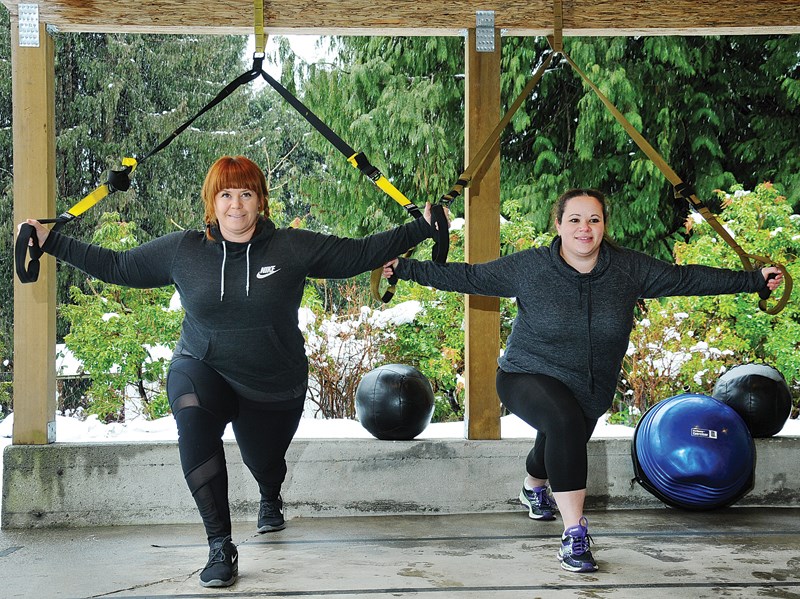Athlete Louise Green kept feeling like plus-size women weren’t welcome by the athletic industry or well represented in the exercise culture. So she decided to take it on herself.
Ten years ago Green started an athletic boot camp and exercise program from her home in Lynn Valley.
The purpose was to give plus-size women the opportunity to realize their athletic potential in a culture that more than often ignores them completely.
In a large, covered space outside her home, Green led almost daily boot camps using boxing equipment, free-weights and plenty of encouraging words.
“I think people would be surprised at what goes on there. It’s pretty intense,” Green says.
But the intensity of Green’s workouts and boot camps have always been underscored with the notion that people, mainly women, can be plus-size while still leading fit and healthy lives, a counter-cultural position, she says, in a society that places extraordinary pressure on women to be thin.
These days, Green says she runs about two boot camp classes a week. But her advocacy for plus-size women and athletes in a culture that often rejects them remains just as fervent.
“I’m more committed to bringing the message to a higher level,” Green says.
On March 18, Green released Big Fit Girl in an attempt to reach that higher level.
The book, Green’s first, balances her personal story of struggle and intimidation when it came to being a plus-size person with the ambitions of an athlete, with concrete advice for plus-size athletes trying to reach their goals.
“For me, just navigating the fitness world as a runner and a triathlete, I often don’t see a representation of my body. Not so much now, but in the beginning it was really intimidating. It just made things that much scarier,” Green says.
As the book explains, she overcame her feelings of intimidation and changed her attitudes about diet and exercise through sheer determination.
“I think my will and desire to follow that passion just pushed me through all the fear and intimidation I faced as a larger woman,” she says.
Prior to becoming a certified fitness instructor and starting her boot camp business, Green recounts a story where she signed up for a “Learn to Run a 5K” group offered by a running store.
“I was completely shocked to find out that my first run coach was plus-size,” Green says.
In her book, she recounts how this plus-size running coach, a woman named Chris, didn’t talk about losing weight or body size. To Chris, they were all athletes regardless of shape or weight.
It was during this time that Green herself began to emerge as an athlete as well as an advocate for fit and healthy living that steered away from athletic industry pressure.
“I really, really wanted to follow this path in my career,” she says.
Besides the personal memoir aspects of Green’s book, she says it also provides concrete advice for readers when it comes to setting goals, buying athletic clothing and creating a support team.
One thing Green advises for plus-size athletes is the importance of aligning themselves with people that share similar visions of health.
“If you’re a larger person that just wants to move and be active and healthy, aligning yourself with someone who has a hardcore weight loss mission is going to not feel great,” she says.
On May 1 she is flying to London, England, to do publicity and promote Big Fit Girl.
The book is also being distributed throughout Canada, the U.K., U.S. and Australia.
Green is an experienced public speaker and writer on the topic of plus-size athleticism and body image, but she says the publication of her first book will allow her to share this message with a greater number of people.
All women, she says, can relate to her story.
“There’s something here that’s bigger than a neighbourhood boot camp,” Green says.



